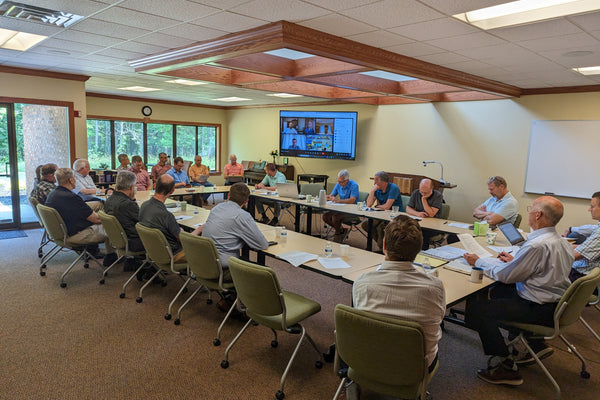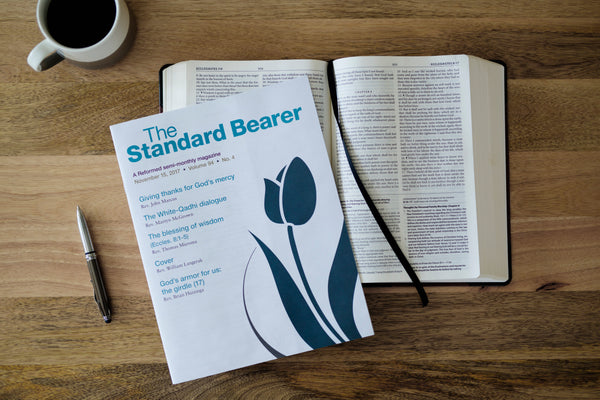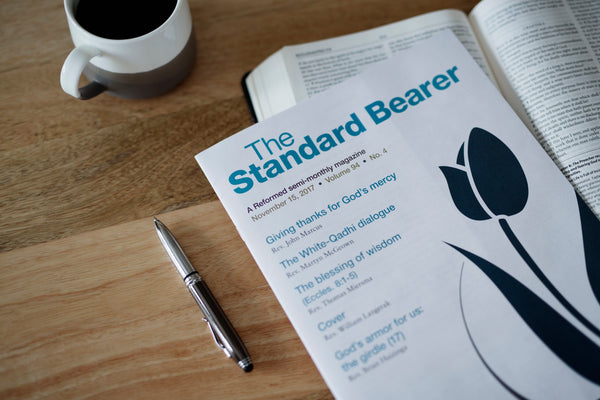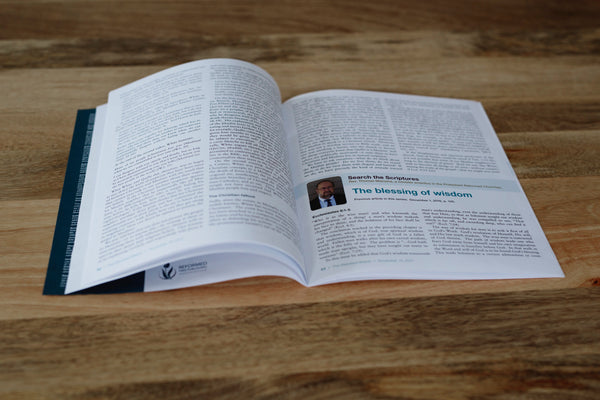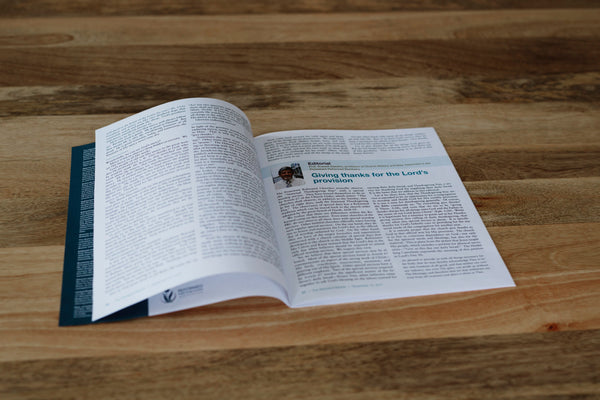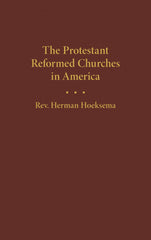Your cart is empty now.
Postscript to the enduring freedom of the Standard Bearer
Thanks. I’ve said thanks to you, the reader, but this word of thanks goes to a previous RFPA board and specifically to four men on that board. This word of thanks is for their wives and families as well. Four men pored through one hundred years of RFPA history and Standard Bearer articles. Four men gave hundreds of hours to study the history of this relationship. An entire board spent months considering and discussing this history. They spent months on this work because it was serious and important work. They did this because they love the RFPA, they love the Standard Bearer, and they love their Christian brothers. When concern was expressed, this board and these men took that concern seriously. They were not dismissive of the concern expressed by their brothers, but rather were thoughtful and careful. These men have a patience and talent that I can only aspire to and admire. I am grateful for their talents, their time, and their work. I am grateful that I can stand on the shoulders of these men.The enduring freedom of the Standard Bearer (6 of 6): To whom much is given, much is required (Luke 12:48)—or, the great responsibility that comes with the enduring freedom of the Standard Bearer
The Standard Bearer is free. The editors are free. The editors have full authority over the contents of the magazine. The RFPA provides her full support to the Standard Bearer and her editors. But that does not mean that the RFPA and the supporters of the magazine mindlessly follow every editor. The editors are men, and men are not perfect; they sin often. How is an imperfect editor with full authority over the contents of the magazine to be dealt with then? From time to time editors face criticism.
As we have read in the blog post on the influence of the board, the RFPA board itself has, on occasion, issued criticism and rebuke.
This criticism also happens on the pages of the Standard Bearer. Our supporters write in with questions and comments, and opportunity is given for consideration and response. The RFPA board and the SB editors encourage you to write in with your thoughts. This keeps the magazine healthy and interesting.
The enduring freedom of the Standard Bearer (5 of 6): Freedom: The enduring freedom of the Standard Bearer and her free editors
The unique relation between board and SB staff, where owner and publisher do not have control of its publication, was intentionally designed to keep the writers free from ecclesiastical control AND demands from its publishing organization.
In 1953, with the founder Herman Hoeksema being its editor, the editorial staff of the SB unanimously adopted a constitution for themselves. Board and association minutes make no mention of this action, which is evidence that the editorial staff recognized their jurisdiction in this area. As the first two editors-in-chief made clear in their writings, the staff had the only and final word and needed no approval from its “supporting organization.” This constitution defines the editorial staff, editorial committee, and their responsibilities. Here again, it becomes clear that one or three editors do not rule, rather, all the writers are the people who make the decisions on the SB.
The enduring freedom of the Standard Bearer (4 of 6): The influence of the board: exercised carefully to maintain the enduring freedom of the Standard Bearer
In our day and age, we don’t have medieval princes and kings influencing projects and publications. Control and power for such projects are wielded through corporations, associations, and boards. These groups provide protection and defense for stated goals. Here lies the purpose and heart of the RFPA. We support our Standard Bearer and by extension our editors. We provide protection and freedom to our editors so that they may do their work, so that they may write freely. We can influence them, we criticize at times, but ultimately, our goal is to provide the kind of support and freedom that the Fredericks provided so that the editors can be free.
Freedom for the editors does not mean that the board never seeks to influence them. Past boards have expressed disagreement to editorial staff regarding SB content, made suggestions for improvements to the magazine, and worked together with them, while respecting the authority of the editors and staff.
The enduring freedom of the Standard Bearer (3 of 6): Authority: granted to ensure the enduring freedom of the Standard Bearer
Authority is a tricky word. It’s similar to the words responsibility and control. Often these words are used interchangeably, but all three words can also be distinct. It’s a word people sometimes fight about because authority is directly related to freedom.
“The Editorial Staff of the Standard Bearer has authority of the contents of the magazine.” Yes, I just quoted the policy again. Remember, this is the full staff, not just the editorial committee. To have the authority over content means having the responsibility for content; it means to have control of the content. It means this: the editors decide. This is the historic reality of the editors of the Standard Bearer. Early minutes and writings make clear that this was the intent from inception.

